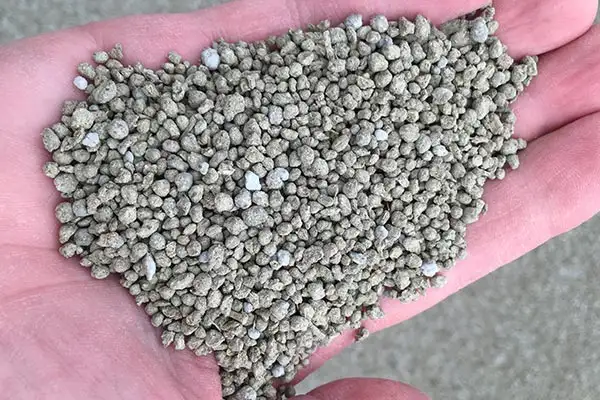
Fertilizer granulation has long played an important role in helping growers to maximize their yields while improving nutrient handling and application, but with precision agriculture’s growing adoption, granular fertilizers have become more important than ever.
What is Precision Agriculture?
Precision agriculture, or ‘precision farming’, combines innovations in geolocation technology with recognized best management practices in crop production to deliver site-specific, optimized crop nutrition, based on the identification and analysis of in-field variability. As such, it is an essential technique in meeting global food demand amidst ongoing challenges in agriculture.
The underlying principle behind precision agriculture is that variability naturally occurs within fields. Therefore, applying the proper inputs in the right place, at the right time, in the appropriate amounts will achieve optimal yield for the entire field, a framework consistent with 4R nutrient stewardship best practices.
How Precision Agriculture Works
The key phases of precision agriculture can be described as follows:
- Data Collection
Mapping technology such as Geographic Information Systems (GIS) or Global Position Systems (GPS) is used to define a field’s physical coordinates. This sets up the ability to overlay field information gathered from analysis. - Interpretation
Information such as climate conditions, cropping practices, soils, etc. is processed to determine the best management practices for different areas within the field. - Application of Inputs
Variable-rate technology (VRT) is incorporated into agricultural equipment, allowing nutrients to be applied accurately and specifically based on the individual needs of different areas within the field.
The ability to tailor crop nutrition according to in-field variability not only helps to maximize yields, but it also increases efficiency by avoiding the over-application that can be associated with a blanket approach to fertilizer application. Further, this tailored approach to crop nutrition also helps the grower to realize the full value of their nutrient inputs, while also minimizing waste and the potential for nutrient runoff and its associated environmental effects.
Why Fertilizer Granulation is Vital to Precision Agriculture
Fertilizer granulation lends two key benefits to precision agriculture: precise application (i.e., controlled metering) and the ability to manage granule specifications for optimal performance.
Granular Fertilizer = Precision Application
The ability to precisely apply fertilizers through variable rate technology (VRT) is an essential aspect of precision agriculture and a granular fertilizer is the ideal way to achieve this.
Unlike powders and unprocessed nutrients, which are prone to dust issues and clogging equipment, dry, uniform granules are flowable and easily and cleanly delivered via variable rate technology. This provides the clean, predictable, and consistent application required to meet site-specific crop nutrition needs through VRT.
Control Over Granular Fertilizer Specifications
The wet granulation process gives fertilizer producers significant opportunity to control the physical characteristics of their granules. Physical granule properties not only play into how the material applies, but also how it handles and breaks down.
The ability to control fertilizer granule characteristics such as bulk density, solubility, size guide number, uniformity index, and more, provides another pivotal tool in ensuring fertilizers perform and deliver exactly as desired.
Utilizing On-Farm Manure in Precision Agriculture
While it may be easy to assume that precision agriculture is only applicable to inorganic fertilizers, opportunities also exist for utilizing organic fertilizers and on-farm manure sources in precision agriculture applications as well.
Manure granulation is becoming increasingly popular as a way to mitigate the challenges associated with manure while also realizing its value in terms of nutrient content and organic matter.
The wet granulation process can convert pre-treated manure into a market-acceptable granular fertilizer product, opening the door to use in precision agriculture applications.

Manure-based NPK fertilizer produced in a EMCC on-farm granulation plant
Conclusion
The agriculture industry continues to evolve in order to overcome the world’s ever-changing challenges. Precision agriculture is a progressive step in this evolution, but it is also an educated step forward, utilizing recognized best management practices in combination with advanced application technology. Granulation plays an important role in this effort, delivering fertilizer products designed to handle and apply exactly as needed.
EMCC is the industry’s go-to resource for fertilizer granulation equipment and systems. Our testing facility, the EMCC Innovation Center, provides an essential outlet for establishing feasibility and developing process criteria for the design of commercial-scale equipment and systems. For more information, contact us today!



